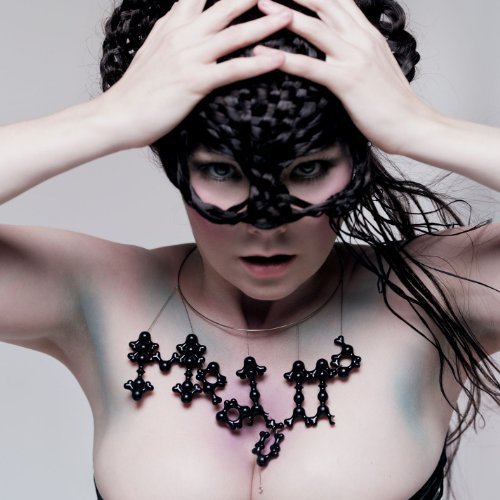
Björk
Medulla
Release Date: Aug 31, 2004
Genre(s): Rock, Alternative
Record label: Elektra/Asylum
Music Critic Score
How the Music Critic Score works
Buy Medulla from Amazon
Album Review: Medulla by Björk
Fantastic, Based on 2 Critics
Based on rating 5/5
Almost entirely a cappella, and recorded with choirs from Iceland and London, a throat singer and a human beat-box (Rahzel from the Roots), Medulla has little precedent in popular music. There is, though, an esoteric lineage to be traced back, from Kate Bush's work with the Trio Bulgarka to Donald Byrd's collaborations with arranger Coleridge Perkinson, and the more extreme choral pop and jazz records of the 1950s where sweetness and dissonance become inseparable. Björk's earlier records were as uneven as the push and pull of the life they reflected; since Vespertine, however, and her relationship with artist Matthew Barney, she has hit a wonderstruck seam of rapture.
Based on rating 8/10
It's hard to accuse Björk of making music influenced by commercial or critical expectations at any point in her career, but her post-Homogenic work is even more focused on following her bliss, whether that means acting and singing in Lars Von Trier's grim musical Dancer in the Dark; crafting tiptoeing laptop lullabies on Vespertine; or, in the case of Medúlla, sculpting an album out of almost nothing but singing and vocal samples. The album's title and concept refer to the purest essence of something, and Medúlla explores both the ritual power of the human voice and some of the most essential themes of Björk's music in a way that's both primal and elaborate. It took a large cast of characters to make the album's seemingly organic sound, including vocalists ranging from Icelandic and British choirs to Inuit singers to Mike Patton and Robert Wyatt; programmers like Matmos, Mark Bell, and Mark "Spike" Stent; and beatboxers such as Rahzel and the onomatopoeically named Japanese artist Dokaka.
'Medulla'
is available now

